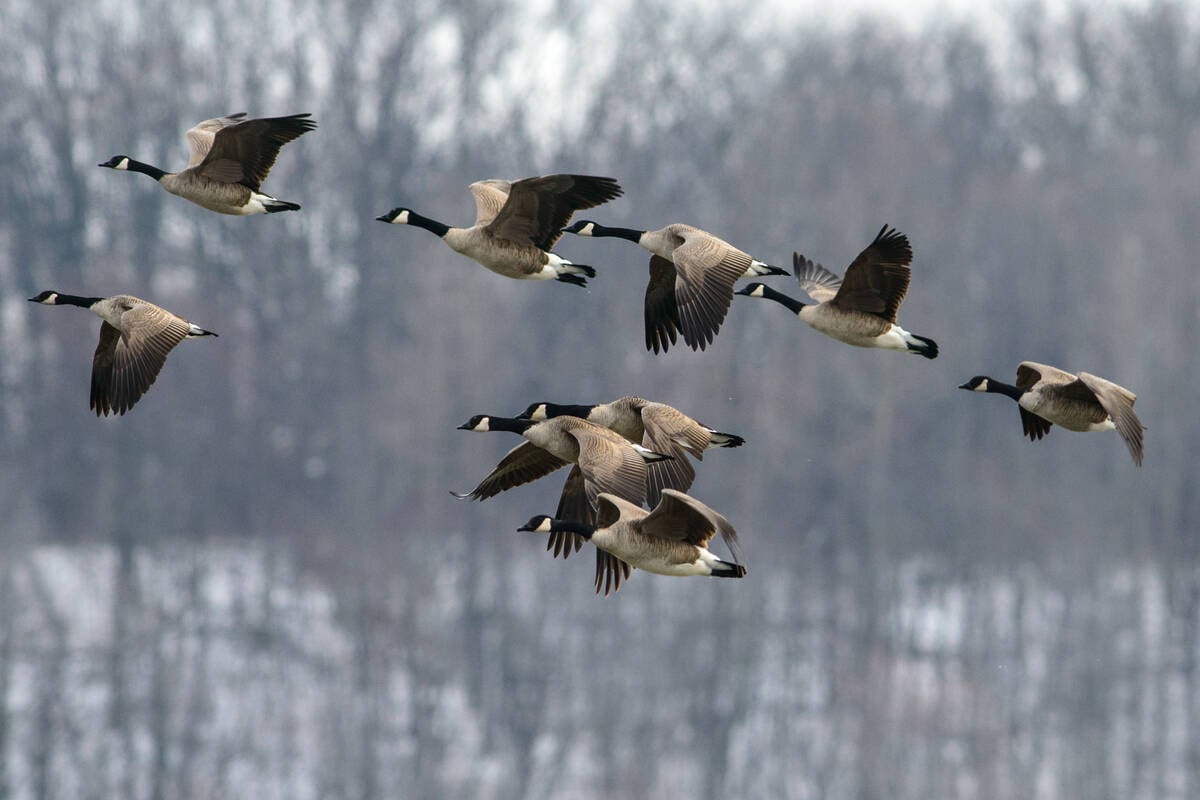Updated, Feb. 10 — Highly pathogenic avian flu has again landed in domestic birds in Atlantic Canada — but this time on a commercial turkey farm, leading other countries to halt imports from Canada’s feather sectors for now.
The Canadian Food Inspection Agency last week filed a report with the World Organization for Animal Health (OIE) confirming an outbreak of high-path H5N1 avian influenza (AI) in birds on a commercial turkey farm in Kings County, in western Nova Scotia.
The outbreak marks Canada’s first bout of high-path avian flu in commercial poultry since an H5N2 strain hit birds in British Columbia and southern Ontario in 2014 and 2015. Canada until now had been deemed free of high-path avian flu since 2015.
Read Also

How we’re tracking avian flu’s toll on wildlife across North America
Avian influenza is a virus that is clearly a threat to livestock and human health. Our team, a collaboration of governments and academics across the country, recently assessed the extent of HPAI A(H5Nx) in at-risk species across Canada.
But with Canada’s animal health status now changed to “not free from AI,” several countries have put restrictions in place on poultry, eggs and/or other products, CFIA said. (See list below.)
Gene sequencing and PCR tests for the disease were run Thursday (Feb. 3) at CFIA’s National Centre for Foreign Animal Disease in Winnipeg after “high mortality” was reported Jan. 30 at the Nova Scotia farm, the agency said in its OIE report.
Out of 11,800 birds at the property, 6,146 had died, CFIA reported. The outbreak had a 98 per cent mortality rate among affected nine-week-old birds, but just six per cent in three-week-old birds.
CFIA confirmed the virus strain to be H5N1, similar to the strain found in separate “non-poultry” outbreaks on farms and in backyard flocks in Newfoundland and Nova Scotia in the past three months, as well as in wild birds in those provinces.
Analysis of the strain shows it corresponds to the “Eurasian lineage” of H5N1 known to have been circulating in 2021 in poultry in Europe, CFIA said in its report.
The infected Nova Scotia turkey farm was “immediately” quarantined and is now subject to “strict movement controls and a stamping-out policy,” the agency said.
Those controls include setting up a three-kilometre “protection zone” and a 10-km “surveillance zone” around the infected premises. That means “enhanced biosecurity” for other farms within those zones.
Surviving birds on the infected farm have been culled, the Feather Board Command Centre — an Ontario industry body tracking bird disease outbreaks worldwide — said Friday in a biosecurity advisory for members.
CFIA’s report came just days before the U.S. Department of Agriculture’s Animal and Plant Health Inspection Service (APHIS) on Wednesday confirmed an outbreak of high-path avian flu on a commercial turkey farm in southern Indiana’s Dubois County, about 110 km west of Louisville, Ky. It marks the first such outbreak in the U.S. since 2020.
The FBCC said the H5N1 strain is being carried by wild birds in the Atlantic Flyway, a migratory path for wild birds which carries them over much of Eastern Canada and the U.S. southeastern seaboard.
“Given that Ontario is part of this same flyway and that a commercial flock in Nova Scotia has now been infected, it would be prudent” for poultry producers along the flyway to review their biosecurity measures, the FBCC said.
That means keeping poultry away from areas frequented by wild birds; keeping “strict control” over access to poultry barns and farms; cleaning and disinfecting equipment before taking it into poultry barns; wearing only clean clothing and changing footwear before entering production areas; and closely monitoring flock health.
Trade suspensions
With Canada now deemed “not free from avian influenza,” several countries have put restrictions in place on its poultry and/or products, CFIA said. So far those include:
- United States: live birds, raw pet food and edible poultry meat and eggs from the Nova Scotia control zone, except pre-cooked products;
- Mexico: live poultry and poultry products from Nova Scotia;
- Russia: live poultry and poultry products from Nova Scotia and Newfoundland and Labrador;
- Japan: live poultry, hatching eggs, poultry meat and meat products from Nova Scotia;
- European Union: live birds, hatching eggs, animal products for pet food manufacturing, raw pet food, poultry meat and poultry products including eggs and processed egg products from the control zone in Nova Scotia;
- South Korea: live poultry, hatching eggs, birds other than poultry including wild birds, poultry meat and edible eggs from Canada;
- Philippines: live poultry, hatching eggs, birds other than poultry including wild birds, poultry meat and edible eggs from Canada;
- South Africa: live poultry, hatching eggs and poultry products from Canada packaged after Jan. 17, 2022, other than heat-treated products;
- Taiwan: products from Nova Scotia; and
- Hong Kong: products from western Nova Scotia.
— Article updated Feb. 10, 2022 to include list of countries with import suspensions now in place.












